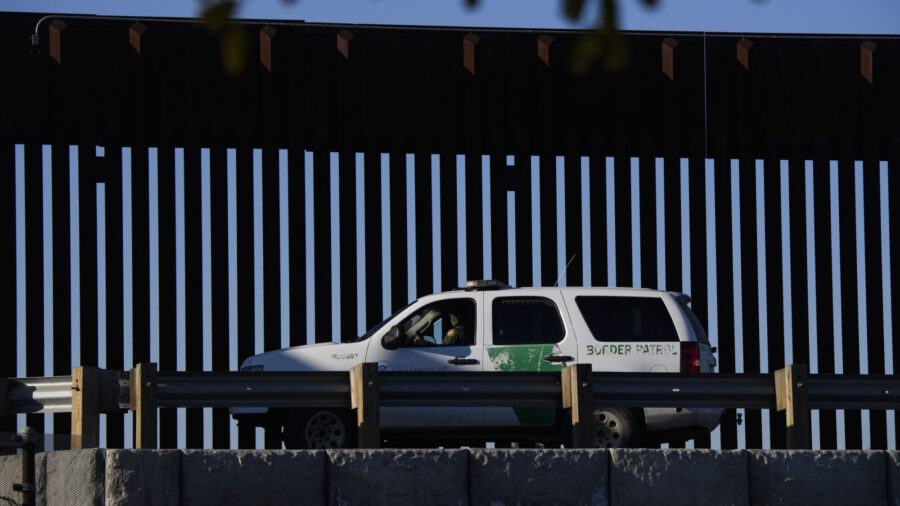U.S. Border Patrol officials recently apprehended an Afghan national who is on the FBI’s terror watchlist after he crossed the U.S. southern border into California.
Republican San Diego County District 5 Supervisor Jim Desmond revealed the Afghan national’s arrest in a press release on Sunday evening. According to Desmond, the Afghan national crossed the border near Otay Mesa on Wednesday along with a group of other illegal border crossers.
“This should serve as a stark reminder to President Biden and the Federal Government on the critical need for maintaining a strong border,” Desmond said. “As a nation, we must remain steadfast in our commitment to protect the safety and security of our citizens. A strong and orderly border process is crucial in preventing individuals with nefarious intentions from entering our country. The open border policy has allowed fentanyl to pour into our country, asylum seekers to be human trafficked, and terrorists to attempt entry into our country.”
Desmond did not provide additional details about the Afghan national arrested.
NTD News reached out to U.S. Customs and Border Protection (CBP) for further information, but they directed questions about the arrest incident to the FBI. The FBI did not respond by the time this article was published.
Desmond cited the Afghan national’s arrest as a cause for concern over the Biden administration’s handling of border security issues.
“The protection of our citizens, the preservation of national security, and the facilitation of safe and legal immigration should be a top priority for this administration, yet they have failed,” Desmond’s press statement reads. “The presence of an individual on the terror watch list crossing our borders is a stark reminder of the failures of the Federal Government that are now being put on San Diegans and Americans.”
Title 42 Expires
The Afghan national and terrorist suspect was apprehended at the southern border just over a day before the Title 42 pandemic-era immigration restrictions ended.
Throughout the past three years, U.S. immigration and border security officials had been able to turn many migrants away from the border relatively rapidly under Title 42 authority, which related to the prevention and control of communicable diseases like COVID-19. Title 42 expired just before midnight on May 11.
Border communities have been bracing for a surge in traffic through the legal ports of entry, as well as in illegal border crossings between those entry points. Several border communities issued disaster declarations on Friday as they prepared for the surge of new arrivals.
Texas’ Republican Gov. Greg Abbott also activated National Guard troops, who have been observed manning sections of razor wire and physically blocking illegal immigrants from entering Texas. President Joe Biden also ordered additional U.S. troops to the border, though Abbott said those troops would be assigned to administrative duties.
The Biden administration made some policy changes ahead of the anticipated surge of asylum seekers and illegal border crossers.
Prior to the end of Title 42, the administration implemented a rule (pdf) that essentially revived a Trump-era travel policy disqualifying people from applying for asylum in the United States if they didn’t first seek protection in countries they passed through on their way to the United States. The Biden administration has also developed a parole program that allows immigrants to enter and work in the United States for up to two years. The Biden era rules state that those who still ignore the border and illegally cross will be returned and disqualified from future entry under the parole program.
As his administration prepared for Title 42 to expire last week, Biden predicted that the U.S. southern border is “going to be chaotic for a while.”
In his own statements last week, Homeland Security Secretary Alejandro Mayorkas publicly blamed Congress for the immigration challenges that border officials face.
“Our current situation is the outcome of Congress leaving a broken, outdated immigration system in place for over two decades, despite unanimous agreement that we desperately need legislative reform,” Mayorkas said. “It is also the result of Congress’ decision not to provide us with the resources we need and that we requested.”

